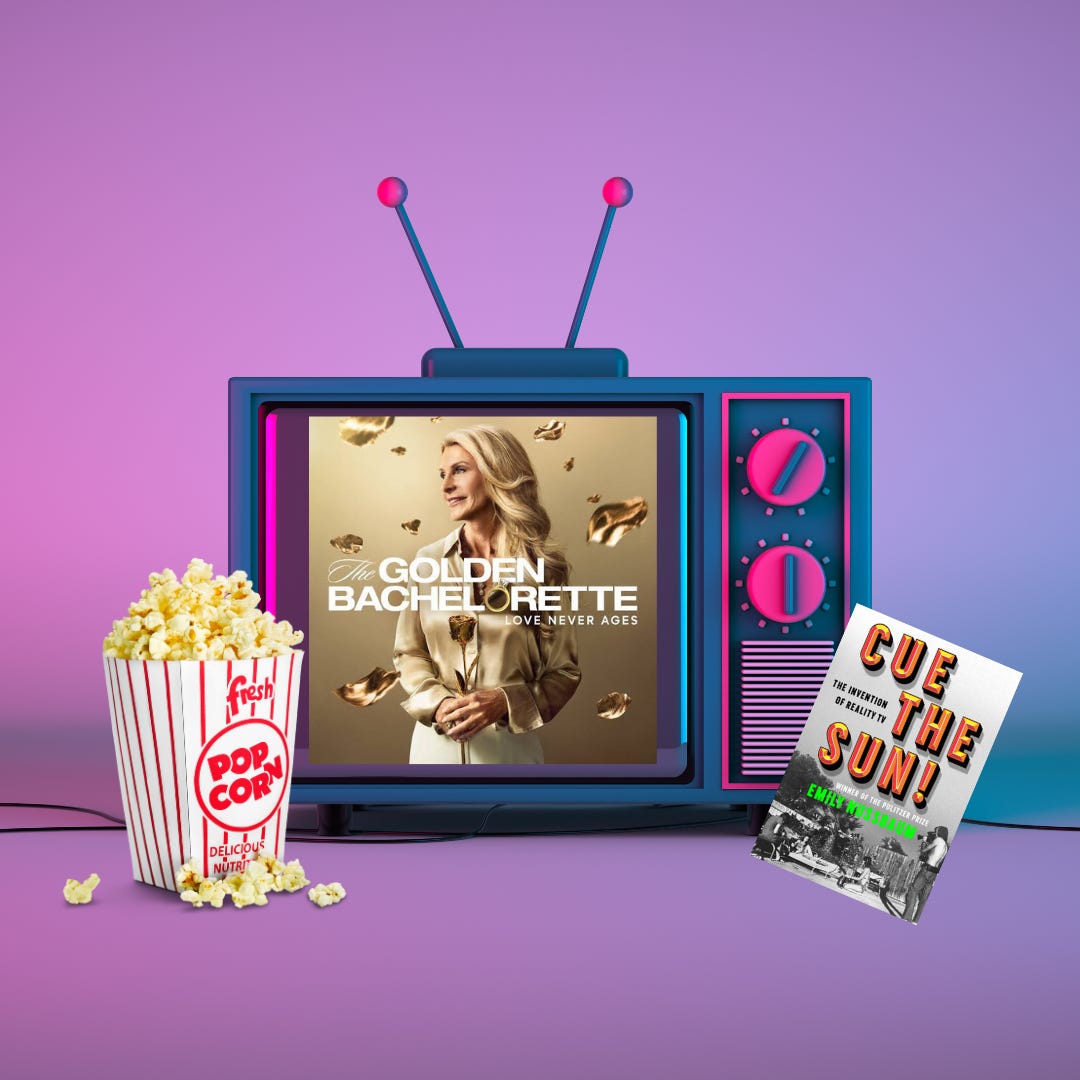Today’s reality TV is pretty mindless. I’ve been reading a great book about how this entertainment genre has evolved since TV's inception.
Here are some current stats from Worldmetrics.org:
“Reality TV shows make up 67% of the top 100 prime-time telecasts for viewers aged 12 to 34.
The revenue generated by reality TV shows in the United States was estimated at $10.2 billion in 2020.
42% of Americans watch reality television programs regularly.”
But back to the title of this article. Why am I in the 42%?
My friends, followers, and co-workers know I’m not an idiot.
I have a respectable “day job,” writing for a digital business magazine and chairing their conference, and writing complex research reports about consumer behavior for various clients.
I don’t just watch reality shows. I study them as a social phenomenon.
I know full well that most of the content is staged and scripted. This great series fictionalized what goes on behind the scenes at Bachelor-like shows. The New Yorker has published several articles about social messages and Bachelor Nation.
In addition to these shows being pure mind-numbing entertainment, I tend to notice how they can reinforce or dispel stereotypes.
That is why I find the “Golden” series a tad disturbing. Although viewership and sponsorship are the main factors driving TV production, mass media has a unique opportunity to reinforce or change perceptions of aging.
Last night’s show again featured men complaining about sleep quality and aching muscles. Joan picked Pascal for her one-on-one date—perhaps because he could stay up late and party. (Perhaps that’s an important message that 60-something-year-old dudes should heed!) At least the show featured ALL generations consuming oatmeal. (Quaker was one of the sponsors.)
Yeah…I know I’m reading too much into this mindless guilty pleasure on Wednesday nights.
But just as the media is careful not to stereotype people based on race or gender, I’d love to see more older people in mass media who aren’t incredibly skinny or annoyingly snoring.



